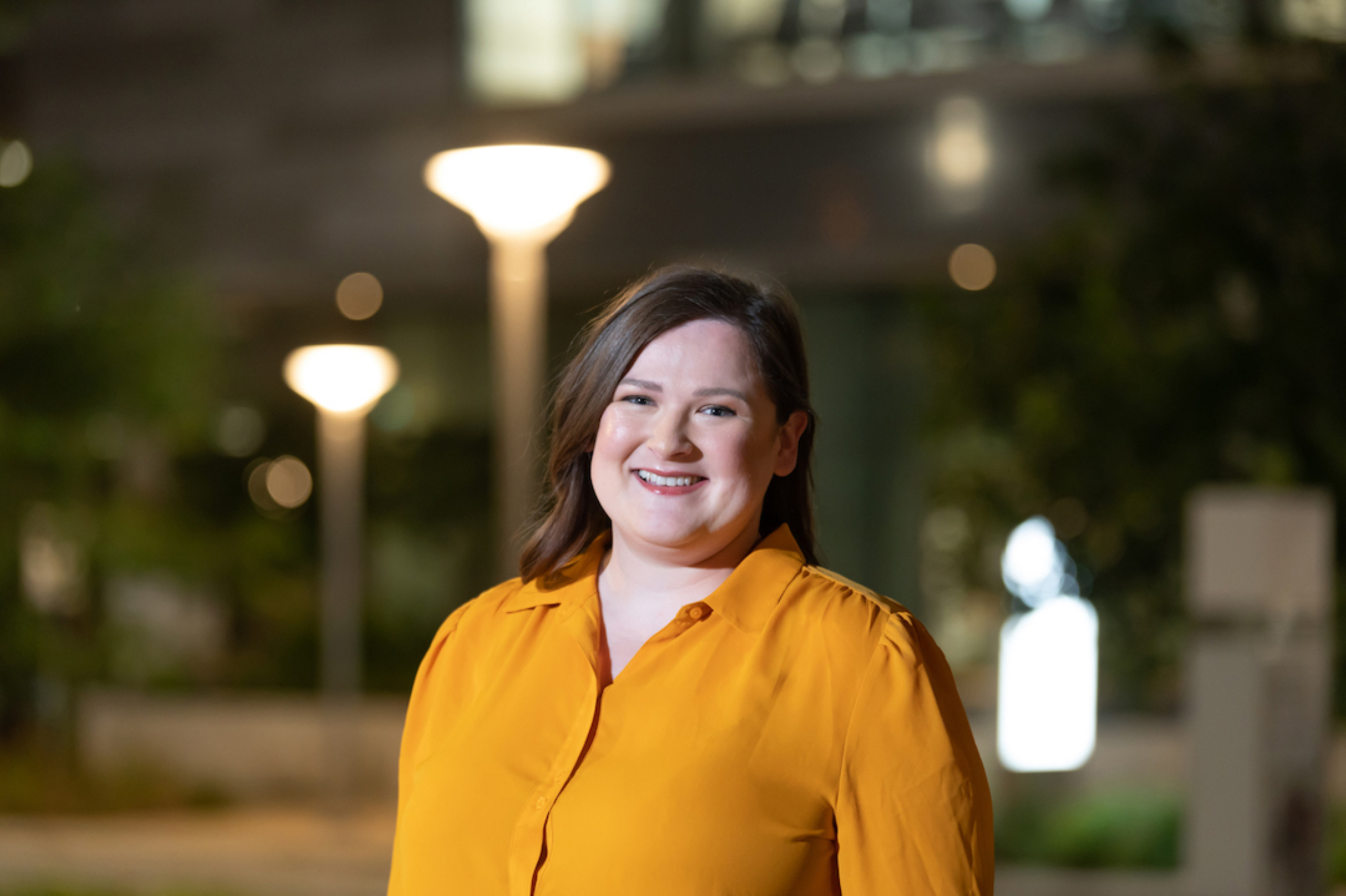Jessica Chambers, M.D., is transforming health care, one night shift at a time. A graduate of Dell Medical School’s Internal Medicine Residency program, Chambers leads residents and students on the night service at Dell Seton Medical Center, where she aims to make overnight medicine just as forward-thinking and full of opportunity as the daytime shift.

Jessica Chambers, M.D.
What’s the problem you’re solving, and what makes you positioned to solve it?
Patients spend half their hospitalization on the night shift, but there’s a misconception that most of that care happens during the daytime. When I joined Dell Med’s faculty in 2019, I found that residents and students focused on night shift as something to “survive,” and education was not prioritized. Patient care was reactionary; if someone was nauseous, they got medication. But why are they nauseous in the first place? Could it be a change in their medication regimen? Gastrointestinal dysmotility? Anxiety?
As the lead nocturnist — a clinician who works only at night — I wanted overnight medicine to become more forward-thinking and anticipatory, and over the years I have been able to transform the nature of overnight patient care within the realm of medicine. My goal is for night medicine to be a core educational topic for medical students, residents and faculty alike, where both clinicians and patients thrive.
My mission is to help humans in the hospital thrive at night — both patients and those who care for them.
Jessica Chambers, M.D.
What are you doing about it?
I designed a curriculum for overnight medical education of internal medicine residents and implemented a team-based culture for overnight patient care. Instead of faculty, residents and students functioning independently at night, and tackling issues as they arrive, our team now invests in nightly education, including cross-cover medicine, approaches to the decompensating patient, and point-of-care ultrasound use.
I subsequently created a night float elective for fourth-year Dell Med students to prepare for the overnight care they will provide as first-year residents. The focus of this elective is to practice responding to nurse and staff pages at night regarding changes in patient status, with an emphasis in examining and treating at the bedside. This gives future physicians confidence and autonomy for future decision-making, with sufficient oversight and guidance to ensure patient safety.
With prioritization of education, bedside exam, patient communication and team culture, patients can get healthier sooner and spend more of their time outside the hospital with the people they love.
What needs to happen to change this in Austin?
Dell Med is forward-thinking, and leadership at the highest levels is already engaged in prioritizing overnight medicine as a key tenet of superior inpatient care. Across the country, overnight medical education is farther behind, and my colleagues and I at Dell Med are looked to for guidance in implementing night medicine curriculums, improving overnight patient safety and focusing on nocturnist career growth and sustainability. When our clinicians have a strong footing in night medicine, patient experience, wellness and safety increases. Other services can look to internal medicine as guides in building an overnight team that thrives and cares for patients at all hours of the day.
The New York Times asks readers to tell their “Tiny Love Stories” in just 100 words. What’s yours?
It was intimidating finding my footing at first. Surrounded by so many inspiring colleagues, I wasn’t sure if I had anything new to offer. It took time to notice the changes. Over the years, I discovered that what I had to offer was transformational — a night medicine team that relied on each other for difficulties, successes and frustrations. We shared our highs and lows, our laughter and tears. And through that, we learned. We learned to be better and how to teach others to be better.